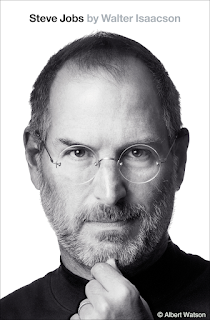"…because the people who are crazy enough to think that they can change the world, are the ones who do." These are probably Steve Jobs' most memorable words. And also perhaps, the one that sum him up best.

Walter Isaacson's biography, "Steve Jobs," offers an in-depth exploration of the life and mind of one of the most transformative figures in technology. However, while it is rich in detail, the book occasionally veers into overly verbose territory, particularly when recounting aspects like the iTunes Store and Jobs's personal music preferences. These lengthy sections detract from the broader narrative, as they seem to overshadow critical developments in Apple's product line, such as the evolution of the MacBook Pro, MacBook Air. MacBooks remain some of the most loved machines for personal computing today, with the MacBook Air, and its more premium MacBook Pro siblings being known the world over for their fluid-easy-to-use interface, compact form factors, and super powerful processors.
Isaacson's narrative often dwells on Jobs's personal struggles and dissatisfaction, which, while illuminating, can paint a rather negative portrait of a man who was simultaneously a visionary and an innovator. The emphasis on Jobs's emotional complexities sometimes leaves the reader wanting for a clearer understanding of his contributions to the technological landscape and the progress achieved during his tenure at Apple. There is an opportunity here for a more balanced portrayal that highlights his dedication to the evolution of technology over the past two decades, especially given the profound impact Apple has had on the world.
Looking back, Steve Jobs' legacy today is far-reaching, still responsible for shaping the way the tech industry works to this day, and even the way we live, work, communicate, educate, and entertain in our everyday lives.
His pursuit of perfection and emphasis on simplicity, with the user's experience at the core of his ideology, has set a standard that several other players in the industry aspire to, till date.
On a more poignant note, Isaacson does delve into Jobs's illness, capturing the care and support he received from family, friends, and colleagues during those challenging times. This aspect of the narrative serves as a reminder of the human side of Jobs, providing a touching contrast to the relentless drive and ambition he exhibited throughout his career.
In summary, while "Steve Jobs" is a comprehensive account of a remarkable life, its focus on minutiae can sometimes detract from the broader themes of technological evolution and innovation, leaving readers craving a clearer depiction of Jobs's lasting legacy in the context of the modern world.
Rating: *****
